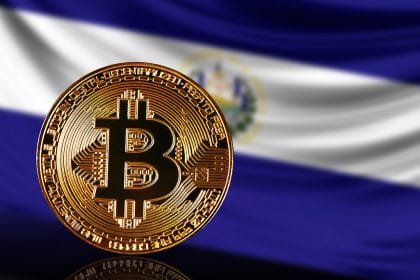Despite the bogus debt that El Salvador has to offset, its financing needs are not tapering down according to the Fitch Rating report.
American credit rating agency Fitch Ratings has downgraded the Long-Term Foreign-Currency Issuer Default Rating (IDR) of El Salvador to ‘CCC’ from ‘B-‘. As contained in a report shared by the agency, the country’s new rating was informed by many reasons including the heightened financing risks stemming from increased reliance on short-term debt.
El Salvador is a country in Central America whose economy is highly dollarized. The nation, under the presidency of Nayib Bukele, adopted Bitcoin (BTC) as a legal tender back in September 2021, and thus far, has been shifting its monetary policies to resonate with BTC accumulation. The country has a lot of short-term loan obligations as noted by Fitch, and the switch to Bitcoin is arguably expected to make access to financing more difficult for the country.
El Salvador has about $800 million in debts due by January 2023, a high fiscal deficit, and a shrinking of options to access funding from local sources. While local funding options are hard to come by, Fitch pointed out that the high rate of at least 15% in the external market has further made it more difficult for the country to access the funding it needs from outside sources.
The adoption of Bitcoin as a legal tender has placed a strain on the relationship between the country and the International Monetary Fund (IMF). As such, the short-term funding bailout from the IMF for at least 2022 to 2023 financial year is at risk, a situation that is not helped with the concentration of power in the country’s president which acts as a dictatorship.
“In Fitch’s view, weakening of institutions and concentration of power in the presidency have increased policy unpredictability, and the adoption of bitcoin as legal tender has added uncertainty about the potential for an IMF program that would unlock financing for 2022-2023,” the report reads.
El Salvador Debt and Hopes of Bitcoin to the Rescue
Despite the bogus debt that El Salvador has to offset, its financing needs are not tapering down according to the Fitch Rating report.
“Fitch estimates total financing needs of USD4.85 billion in 2022 (16% of GDP), rising to USD5.4 billion in 2023 (18% of GDP),” the report highlighted, adding that it “expects El Salvador’s 2022 fiscal deficit to narrow marginally to 5.5% of GDP from 5.7% of GDP in 2021.”
Beyond its internal funds’ generation modalities, Bitcoin comes off as the easiest option for bailout El Salvador can consider in the nearest possible future. With the adoption of BTC straining its relationship with potential bailout agencies, the expectations of price growth in the digital currency at this time can come in very handy.
The country has accumulated a total of 1,800 BTC thus far, and the Bukele is quite optimistic about the potential growth of the cryptocurrency. Should the digital currency grow back even to its previous all-time high (ATH) around $68,000, the El Salvadoran holdings will be worth about $122.4 million, a figure that may not be enough to offset its short-term deficits.
next